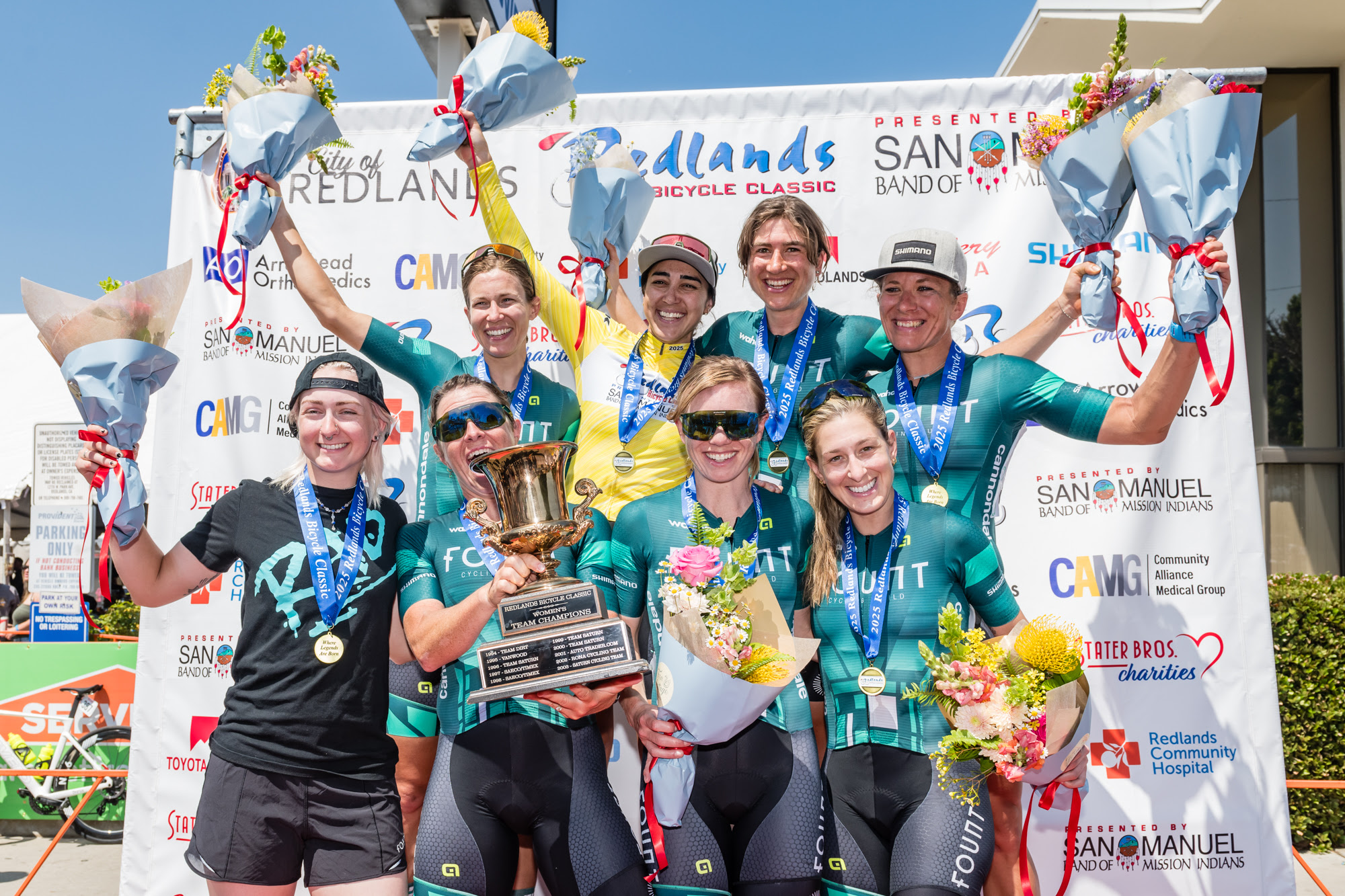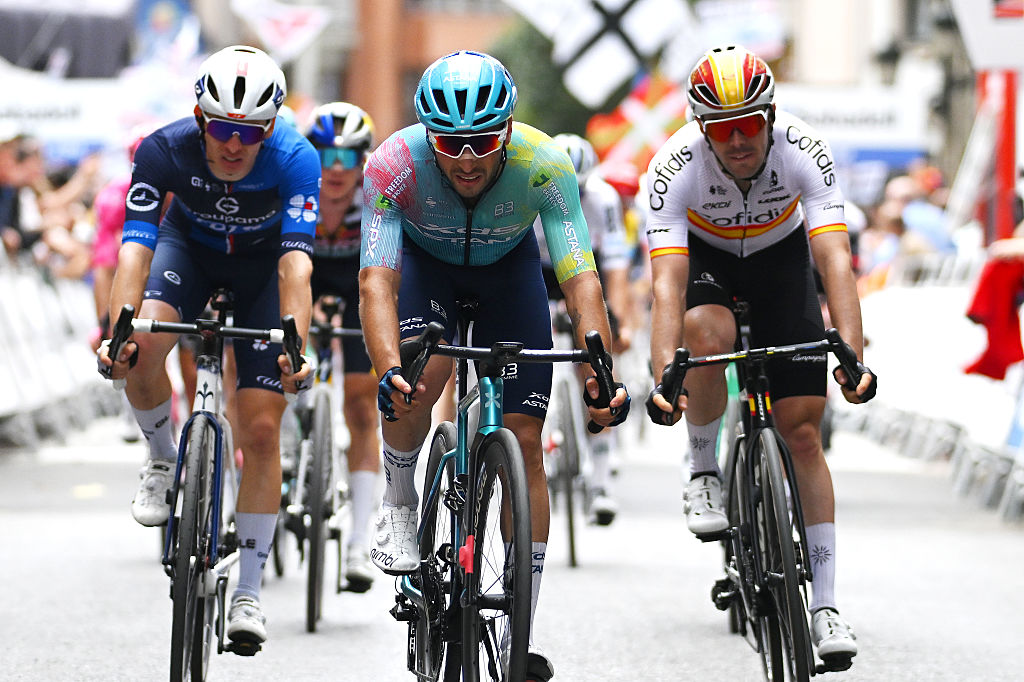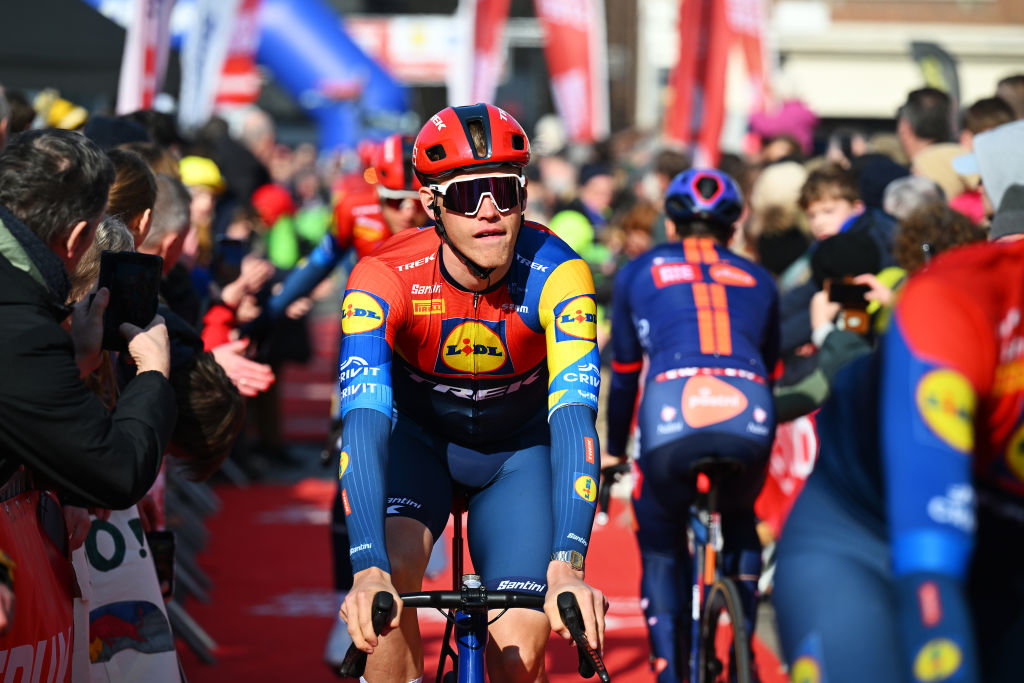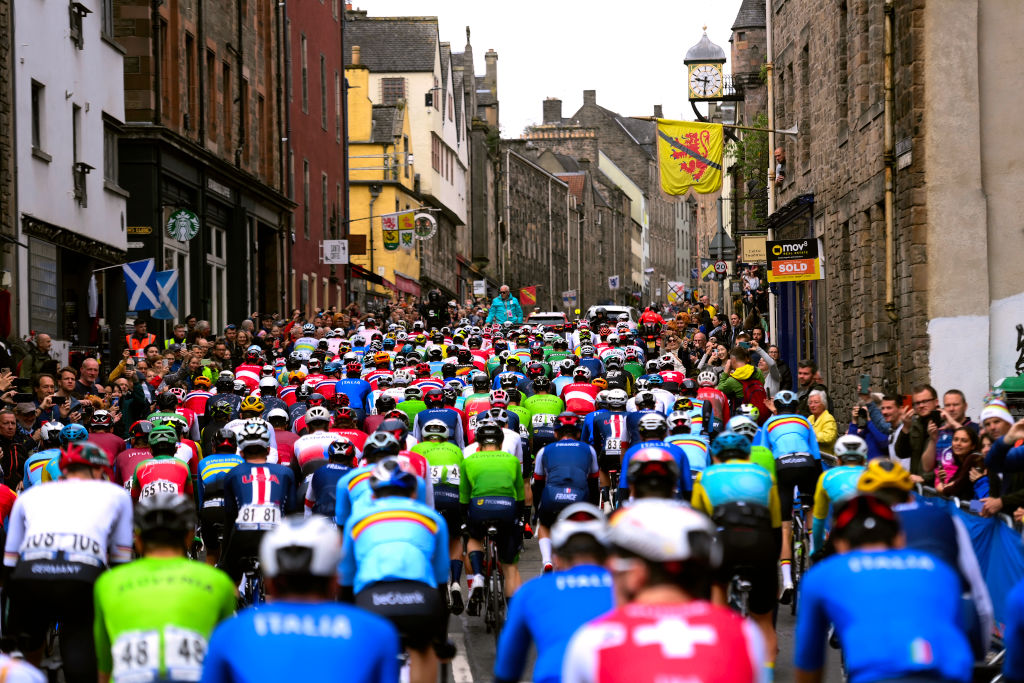From Russia to Roma, with love: Menchov falls for maglia rosa
Stage 21 - Sunday, May 31: Roma (ITT), 14.4km
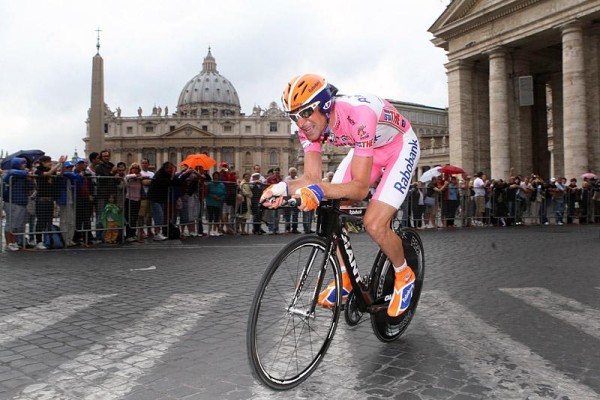
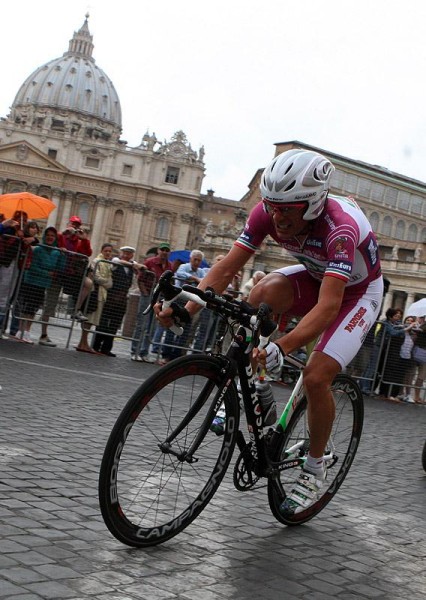
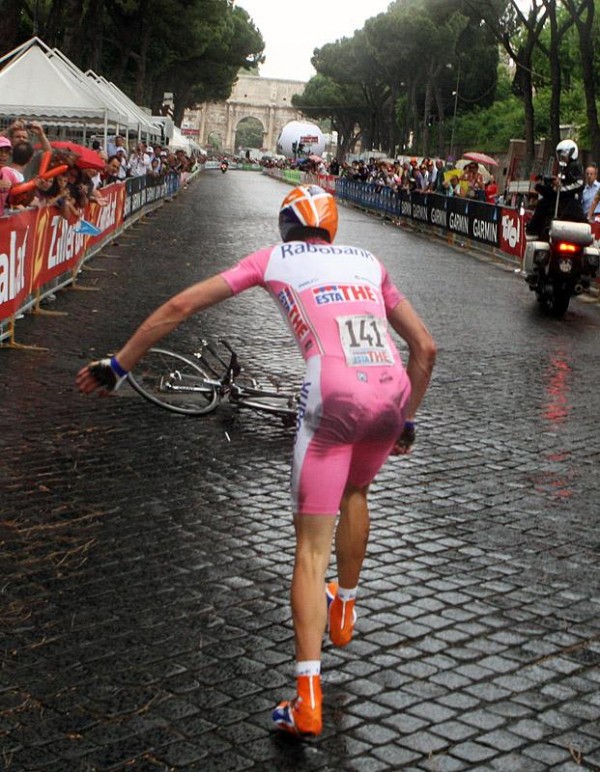
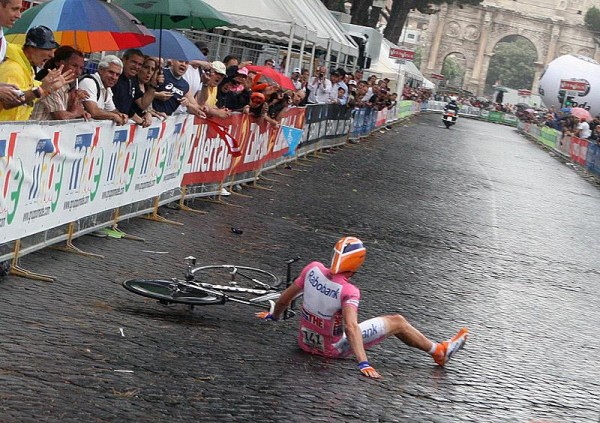
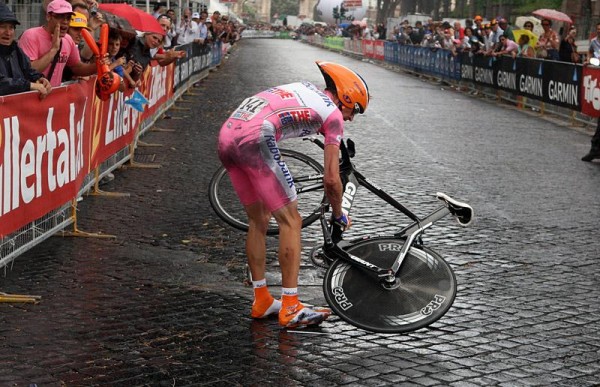
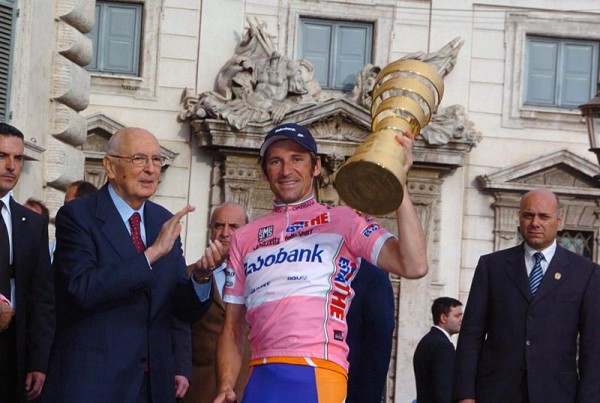
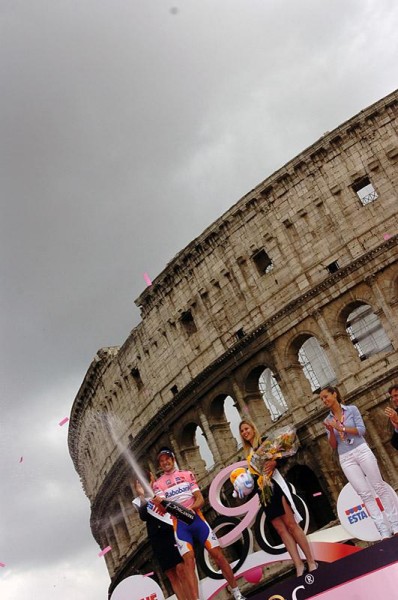
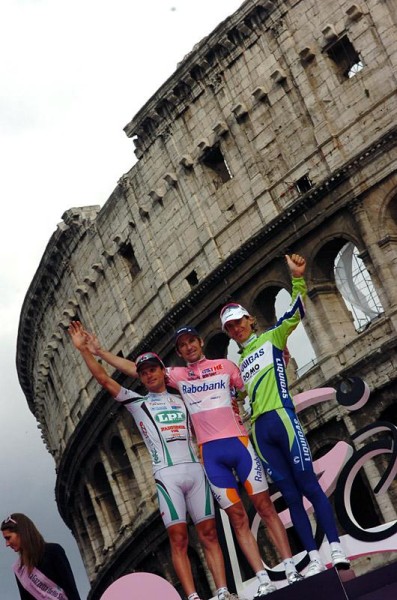
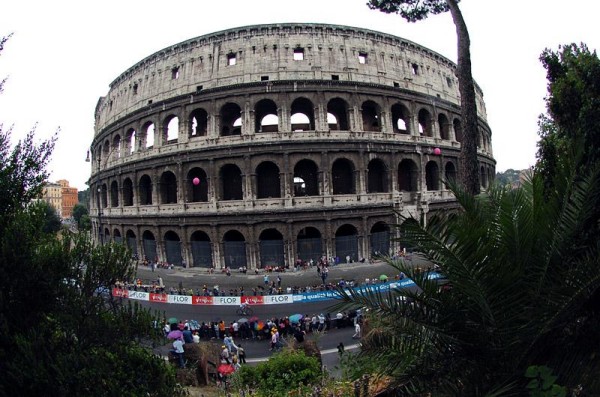
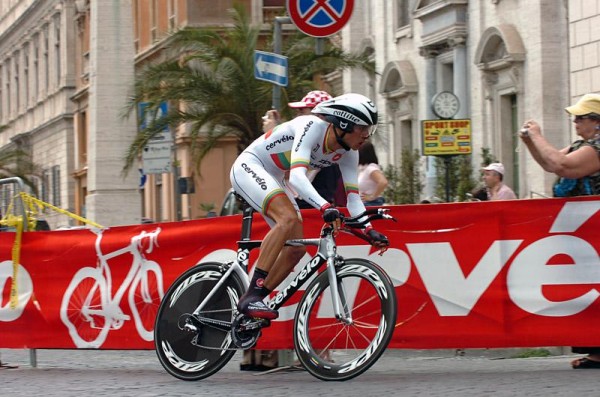
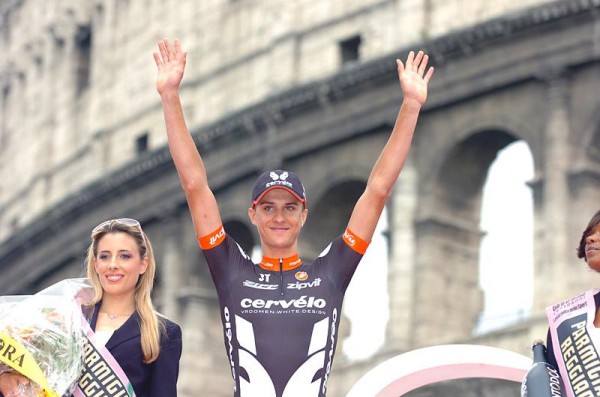
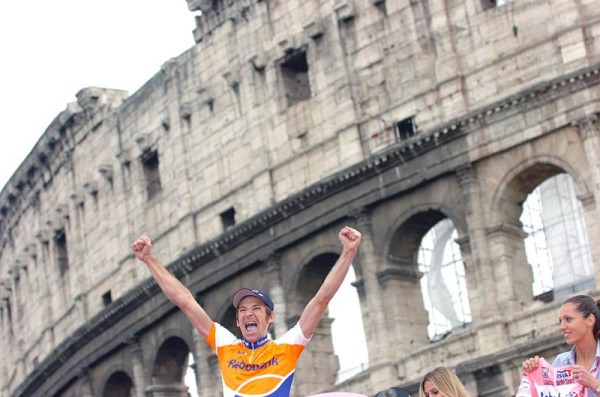
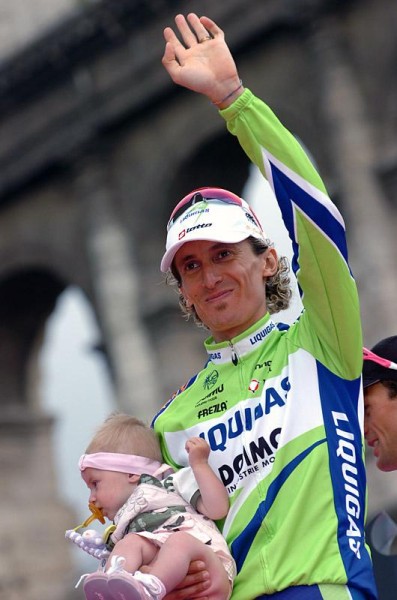
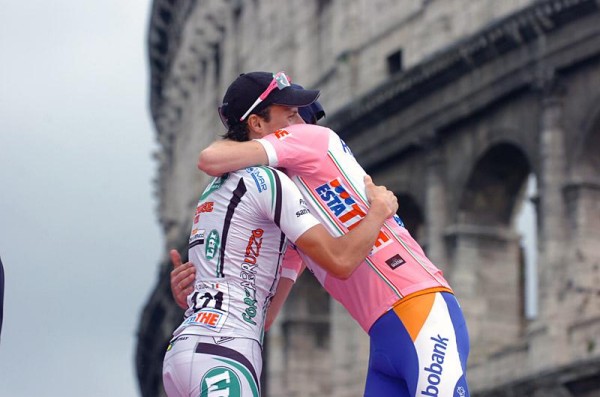
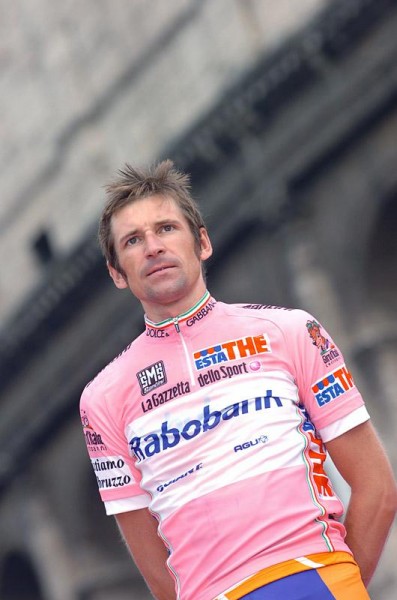
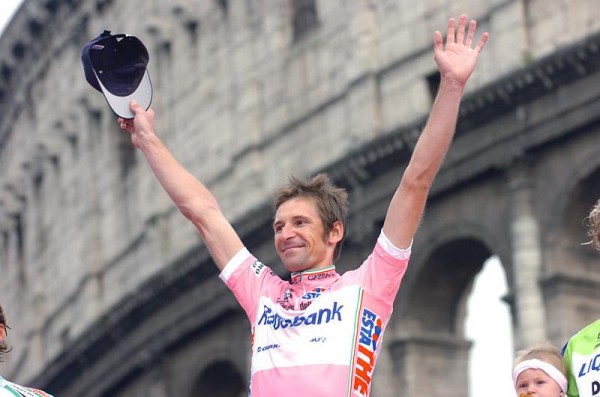
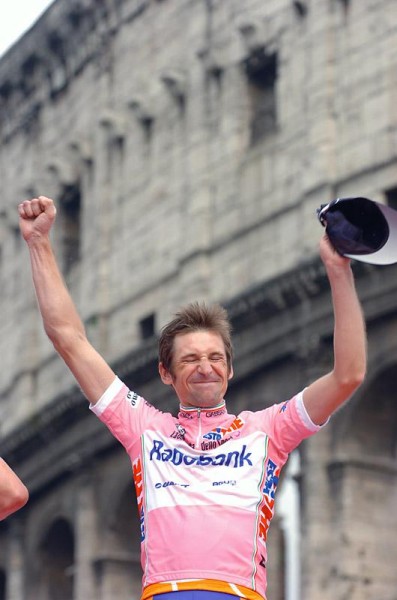
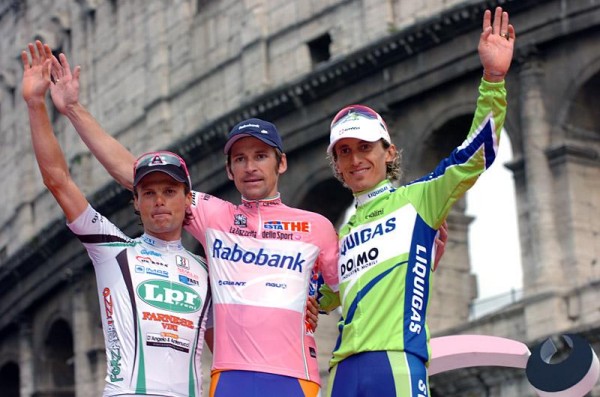
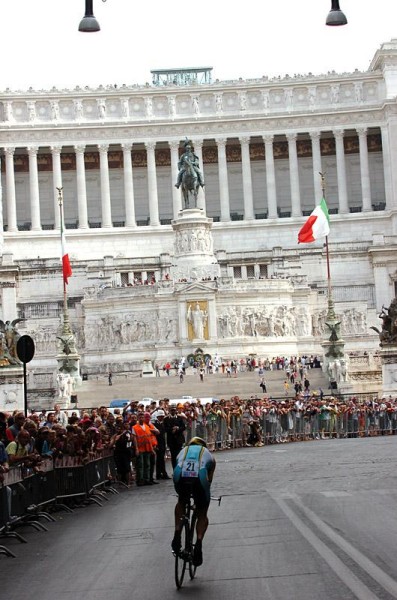
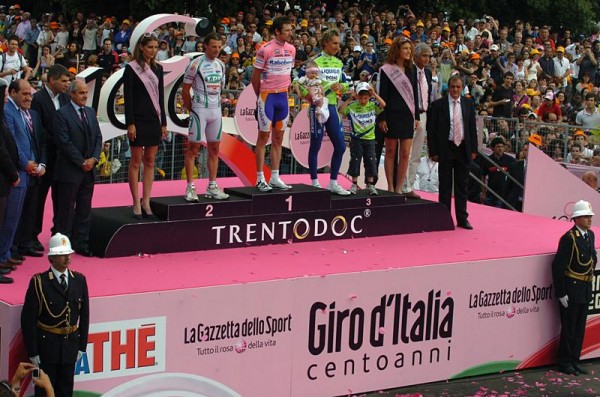
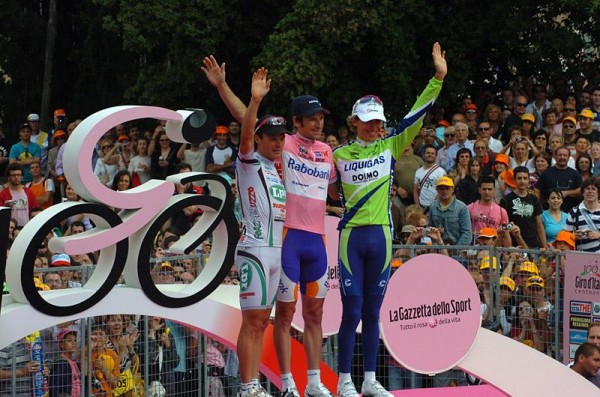
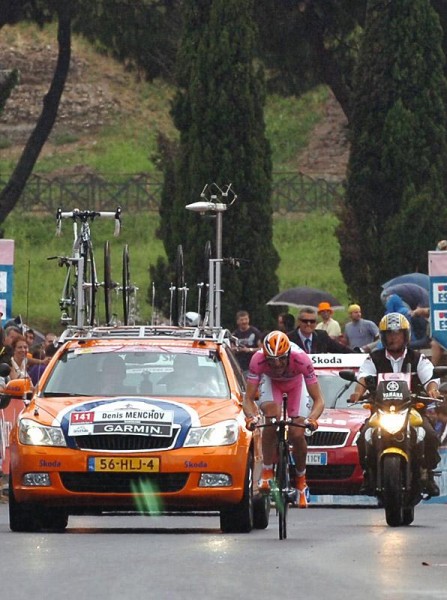
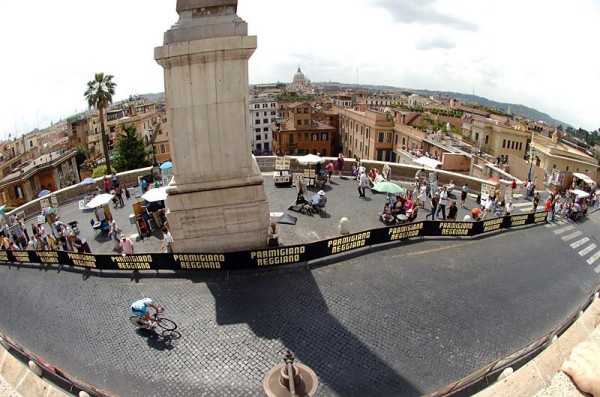
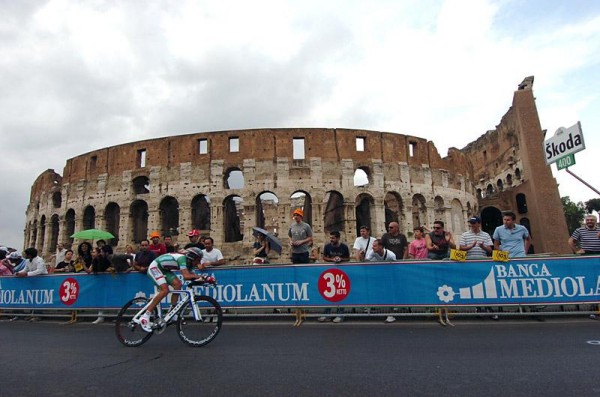
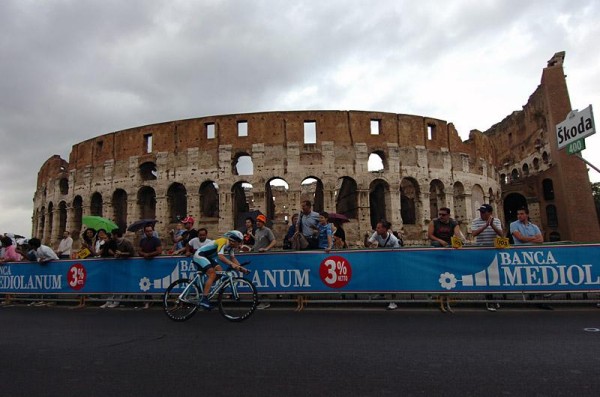
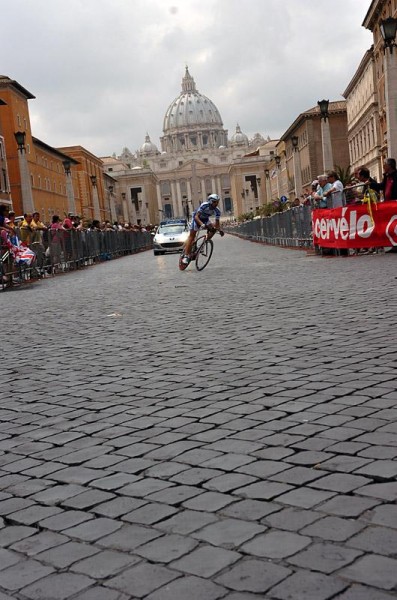
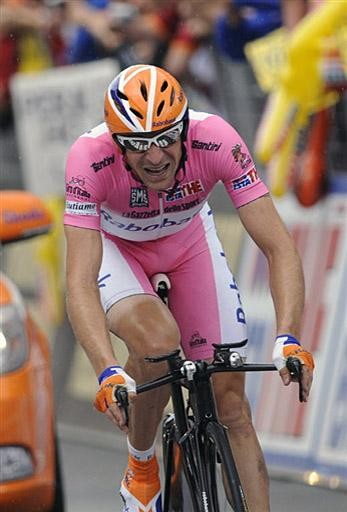
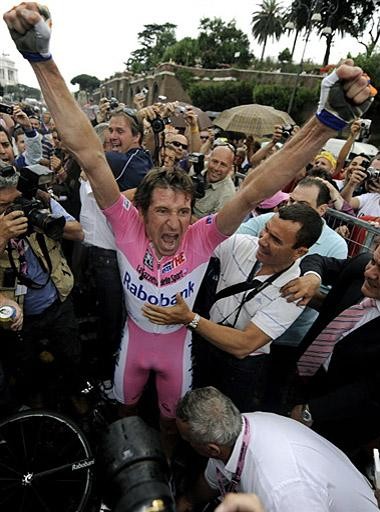
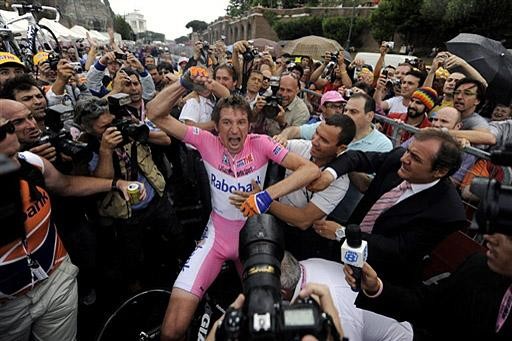
In the hundred years since inaugural winner Luigi Ganna in 1909, there have only been three Russian winners of the Giro d'Italia: Evgeni Berzin in 1994, Pavel Tonkov two years later - and now Denis Menchov of Rabobank in 2009.
Three weeks and 3,456.5 kilometres after the spectacular Lido di Venezia team time trial on May 9, the 31-year-old from Oryol, Russia - who says he only began cycling at school "just for something to do" - achieved his greatest coup since turning professional nine years ago.
"It's the best win I've ever had in my career, because of the Centenary, because of the media, and because of the riders," said Menchov, whose time trial performance Sunday almost met with disaster when he crashed less than a kilometre out on the rain-slicked cobbles around Rome's Colosseum.
Thankfully, a quick-sticks bike change saw him lose little time, his tenth place to surprise winner Ignatas Konovalovas of the Cervelo TestTeam in fact extending his final winning margin to 41 seconds over LPR's Danilo Di Luca. And in an unchanged top three, Franco Pellizotti of Liquigas deservedly found his place on the winners' dais.
"I had no time to think," Menchov said of his crash just 900 metres from the line.
"I had information [through my earpiece] that everything was okay; [my manager Erik Breukink told me] 'don't take risks, don't risk anything, don't panic'.
"I knew I was more than half a minute [ahead] on the general [classification before I crashed]. I didn't have to panic - just take a new bike and finish [the stage]," said Menchov, who displayed uncharacteristic emotion when he crossed the line and let go of his bike that's been attached to him for close to 90 hours, simultaneously screaming and punching the air with unparalleled joy.
"Probably, [the race] was less difficult than last year," he said, fifth in the 2008 Giro. "The gearing we used on the climbs last year, we didn't use this year. Being the centenary, the level of the riders was really, really high, but I came in better condition and was in very good shape."
Asked a few days ago if he raced the Giro like a game of poker, he hesitated, smiling before responding. "I don't know if we can say this...Poker or not, the most important thing was good legs," he said.
Konovalovas' colossal strength outside the Colosseo
When light rain arrived mid-afternoon in Rome, then again for those last to leave, it turned the percorso into an ice-rink for some, where the riders' 21st and final journey ended outside the Colosseum's crumbled off-white walls, one of the world's great monuments in one of the world's great cities.
However, the rain gods did not cast their shadow on Konovalovas, the 79th rider to depart. The Lithuanian's relatively early 15:03 start time on the via dei Fori Imperiali must have felt like a blessing from the Pope, who appeared to make light work of the Centenary Giro's final 14.4 kilometres, his time of 18:42 equating to a far slower than expected 46.203 km/h average.
"At the moment, I can't really believe what I did today. There's a lot of emotions right now," said Konovalovas, only quicker by a second from Garmin-Slipstream's Bradley Wiggins and seven seconds faster than Edvald Boasson Hagen of Team Columbia-High Road.
What does he say to those who claim he won only because of the weather?
"Maybe they are right, maybe not...I don't know. For the first rider to the last one, the conditions were different. We can say it's always like that, but the rain helped me, I admit that.
"The biggest thing for me today is that I'll have more confidence [in myself] and more trust in the power in my legs and hopefully go on to [win in] the future," Konovalovas said.
Not the nail-biter some were hoping for
By staging the 21-stage event like they did, the organisers no doubt wanted a nail-biter until the final centimetre. Sunday's chronometro individuale in the country's capital, however, despite its majestic surroundings, saw no change among the top five from the day before.
It left Di Luca 41 seconds off Menchov's accumulated time of 86 hours, 3 minutes and 11 seconds; a result the 2007 champion said he was pleased with - even when he was leading the race until the Stage 12 time trial around Cinque Terre, won by his Russian adversary. Still, they may have been just empty words. Once you've won a race like the Giro d'Italia, it's hard to be satisfied with second.
"I have nothing but compliments [for Menchov]. In the end the best guy won," said Di Luca, who had already conceded defeat after Stage 20 to Anagni, although at one point early on during Sunday's time trial, the 33-year-old was five seconds ahead of Menchov.
"I started with a road bike because rain started to come down and I didn't want to risk it. I gave it everything," he said.
Could the runner-up have done something different? Did Menchov's main adversary and the man we initially thought was going to win the 2009 Giro make any mistakes that might have cost him the race?
What would Menchov have done if he was Di Luca? "I think I would have done the same," said Menchov, who was simply the strongest throughout the race, no questions asked. "It's difficult, because after 15, 16 days, you can't make mistakes. If you make a mistake, you won't be second or third, you might be seventh or eighth on general classification."
Nonetheless, Di Luca's slightly conservative tactics in the Giro's third week worked in the Russian's favour.
"Of course," Menchov said, "But that's more or less sport - that's cycling. I think [Di Luca's tactics] was normal in a race situation [like ours]."
"I will continue on my path; I have about three or four good years ahead of me," said Di Luca, who added he wants to come back to win another Giro d'Italia.
At 31, Pellizotti comes of age
Conversely, Liquigas' Franco Pellizotti, ever-popular with the tifosi, achieved his finest Grand Tour moment, his 1:59 overall deficit to Menchov earning the final podium step at the Centenary Giro.
Following the tenth stage to Pinerolo, the curly-haired 31-year-old (just 10 days Menchov's senior) had surpassed his co-leader and embattled 2006 Giro champ Ivan Basso, to occupy fifth place overall. Then, after the Cinque Terre time test, Pellizotti improved a place. But after Stage 16, he and Basso were fourth and fifth overall, separated by just 11 seconds.
Who was leading Liquigas? No one seemed brave enough to say.
That was decided the next stage to Blockhaus, where Pellizotti established himself as the clear leader by talking with his legs, soloing to a magnificent mountain-top victory and climbing to third overall, which is the way the podium stayed until Rome.
Now we're left wondering who will lead Liquigas at the Tour de France - providing Basso's invited, of course.
Despite rumours, Menchov kept a steely focus
The past week, Menchov has consistently denied any links to Vienna blood bank 'Humanplasma', speculation that gathered momentum following ousted cyclist Bernhard Kohl's recent comments on German television, the Austrian one of the first to fall victim to EPO's latest incarnation, CERA. To his credit, the Russian remained focused, spoke little other than to say he will cooperate, and consequently remained unflustered.
"If it's really necessary, we will do it; I have no problem," he said Thursday, asked if he would go to Austria to act as a witness for the investigation against Kohl, where it is alleged he played a role in renting out a centrifuge used for blood doping.
"It's not a nice feeling, but if they want, we will find time," Menchov said.
Major gaps for minor classifications
At 35 years young, Stefano Garzelli may be past his prime as a Grand Tour rider, but as the years wear on, the Acqua & Sapone captain appears to have grown more aggressive.
It was this fight in the 2000 Giro champion that almost netted him a stage win or two, and earned Garzelli the mountains classification's maglia verde (green jersey) ahead of climbers better than he, plus the overall prize for combativeness. What's more, to finish the race's 92nd edition seventh-best is nothing to sneeze at, most likely ensuring his place in the peloton for another two or three years.
It's a points classification quite unlike the Tour de France and he certainly wasn't going for it, but Di Luca will return to his home in Abruzzo with the maglia ciclamino and a few extra Euros, acting as a concession of sorts for being first loser.
Somewhat curiously given Italy's been a perennial melting pot for young talent, the best young rider was Belgian Kevin Seeldraeyers of Quick Step. The 22-year-old from Boom, Antwerp, improved significantly on his Giro debut last year where he finished 73rd overall, ending the Centenary edition fourteenth and almost three minutes ahead of the next-best young rider, Francesco Masciarelli of Acqua & Sapone.
Get The Leadout Newsletter
The latest race content, interviews, features, reviews and expert buying guides, direct to your inbox!
Latest on Cyclingnews
-
Alia Shafi delivers GC victory at Redlands Bicycle Classic with Fount Cycling 'guns a blazing' start to finish
Eder Frayer scores close GC victory for men by 10 seconds over Quinn Felton -
Relegation Watch 2025: XDS Astana's momentum accelerates as Picnic-PostNL, Arkéa-B&B Hotels stall in Spring Classics
XDS Astana on track to surpass Picnic-PostNL, Cofidis -
'The possibilities are endless' - Jakob Söderqvist set to move up to the WorldTour with Lidl-Trek in 2026
'Stepping into the WorldTour team means the start of a new chapter in my sporting career' says Swedish time triallist -
Gravel, MTB enduro and bike polo among seven additions to UCI Cycling World Championships lineup in 2027
Hilly 13.3km Sallanches circuit returns for road races after 45 years for 'Super Worlds'
